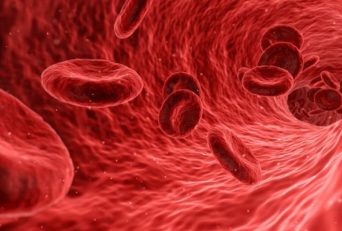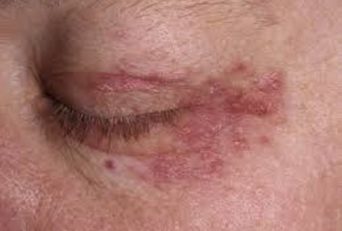Do you get up with a salty mouth quite often? Does this happen to you when you haven’t eaten anything salty? If yes, then you are not the only one, thousand people suffer from this problem and this sensation is not something really to worry about.
However, if it’s a constant feeling and is bothering you too much, read out the article to know its cause and ways to cure it.
Table of Contents
Causes Of Salty Taste In Mouth
The feeling can occur due to multiple underlying factors. It can be due to a single disease or several other health issues which together may cause an abnormal salty taste your mouth. Although, it is crucial to differentiate the taste if it is truly salty or metallic in nature.
A metallic taste may occur due to bleeding inside the mouth or it may be an adverse effect of a medication. On the contrary, a salty taste inside the mouth can be due to the variety of reasons. The common reasons for it are as follows:
1.Acid Reflux Or Bile Reflux
A sour or salty taste in your mouth may be a sign of acid or bile reflux. They both often occur simultaneously or separately but with almost common symptoms. Acid reflux occurs due to the stomach acids going into the esophagus. Bile reflux occurs when the bile liquid from the intestine goes into the stomach and esophagus.
In these conditions, along with salty taste in the mouth, you will face other symptoms too like frequent heartburn, nausea, vomiting, cough, and sometimes weight loss too. You can improve this conditions by carrying lifestyle changes, dietary changes, and with medications.
2.Bleeding inside the mouth
When your mouth bleeds, you will a metallic taste accompanied with a salty taste in your mouth. It happens due to a variety of reasons like eating sharp foods, brushing your gums hard, etc.
If this happens constantly even after regular brushing or floss, you may be suffering from gingivitis. It is a common disease that causes the gums to swell up, bleed, and sore. See your dentist, if it’s increasing as it may cause further infections.
3.Undesirable Oral Hygiene
People who don’t brush regularly can develop sodium taste in their mouth. Additionally, it will also build up bacteria’s in the mouth that can cause a foul smell and a salty taste. Brushing your teeth and frequent gargle may just make this condition better.
4.Dehydration
Dehydration can cause salty mouth. However, it may develop all of a sudden or over a period of time. In most of the cases, dehydration occurs due to diarrhea or vomiting.Along with dehydration, you might feel thirsty, you may urinate less, and you may feel dizzy or fatigued. To cure your condition, try drinking 8-10 glasses of water each day.
5.Post-Nasal Drip
Post nasal drip is a condition in which the nose and throat continuously produce mucus. So, it can be a cause of salty mouth too. The mucus from the nose can build at the back of the throat, further, it gets mixed with the saliva of the mouth. together Thus, they can cause a salty taste.
Alternatively, cold and allergies can do the same too. They cause excessive mucous secretion that leads to a salty mouth. To resolve, this you should take self-measures like drinking too much fluid, taking an antihistamine, and blowing your nose. Alternatively, you can even use saline sprays to clear your nasal airways.
6.Nutritional Deficiencies
This is a common cause, most of us develop a salty or metallic mouth taste when our body lacks nutrients. Although, the deficiency develops over a period of time. Along with salty taste, you may suffer from symptoms like weakness, irregular heartbeat, numbness in hands and feet etc.
The most common deficiency causing a salty taste is folate deficiency, Vitamin B-12, and Vitamin C. you have to consume foods that contain these foods. For example, you can intake Vitamin C from oranges, Vitamin B12 from the egg, fish, and milk products, and folate from dark leafy vegetables, and fruits.
7.Sjogren Syndrome
This syndrome develops when the immune system attacks the moisture making glands in the body especially the salivary glands and the tear ducts. It develops dry mouth and eventually a salty taste in your mouth.
The syndrome shows features like joint pain, vaginal dryness, dry cough, rheumatoid arthritis, and lupus. Additionally, you can also take medication or may even have to undergo a surgery to treat it.
8.Side effects of Medication
Almost all the medications have some or the other side-effect. However, the side-effects are mild. Almost all the medications develop a salty taste upon consumption. Sometimes the taste goes off within minutes but, sometimes it remains in the mouth for quite a long time.
If you continue to develop this problem consult your doctor, and get it sorted out. Around 400 medications alter the sensitivity of the taste buds. However, the sensation lasts until you continue taking the medications.
9.Infections of Salivary Gland
Infections to the salivary glands may cause alteration of the taste buds. Damage to them may decrement the production of saliva and may increment the sodium and chloride in the existing saliva composition. All these alterations develop a salty taste inside the mouth. Consult your doctor and get the treatment done.
10. Changes in the nervous system
A cerebrospinal leak can be a reason for salty taste. When a tear or hole develops in the membrane surrounding the brain. From the hole, the liquid present in the brain drips from the nose and the mouth. This condition is accompanied by symptoms like vomiting, neck stiffness, nausea etc.
11. Changes in the hormones
During menopause and pregnancy, hormonal changes are common. Sometimes, they alter the taste buds and you experience salty taste.
Is This Cause For Concern?
Only a salty and dry mouth is not a cause for concern. However, if salty taste is accompanied by several other symptoms than it can be a reason to worry. As nobody will have a salty taste without any reasons.
Additionally, the time and consistency also matter. If you feel salty taste throughout the day, there may be an ongoing severe issue that is altering the taste buds. It’s not a cause for concern as it can be treated but only upon correct diagnosis.
Salty Taste In Mouth Diagnosis
Salts taste in mouth is not a disease or disorder but a result of an underlying condition changing the taste buds. To diagnose the exact cause a doctor might consider the medical history and a physical examination.
Initially, a taste test is conducted to determine the root cause and the extent of the taste disorder. In this taste test, the patient’s response is checked with different chemicals. If the taste test doesn’t give the actual diagnosis, you may be asked for other imaging studies to check your sinuses.
Additionally, a doctor might look for the following issues for diagnosing the cause:
1)Oral examination:
A thorough examination to check for mouth or teeth infections, salivary gland infection, swelling of gums, and the taste buds. It is done to check if there is any kind of bleeding inside the mouth.
2)Nasal examination:
The Nasal passage is examined to check for post-nasal drips, a sinus infection, and a nasal allergy. They are checked as these conditions causes excessive mucus production which gets accumulates in the back of nose or throat causing a salty taste.
3)Ongoing medication:
if the patient is on any ongoing medication, the medicines are changed as most of the medicines bring about this taste.
Diagnosing a salty mouth taste is not easy. A lot of examinations are done to rule out the exact cause. Many a time, in rare cases a few tests are also undergone to check for the cause.
Home Remedies To Get Rid Of Salty Taste In Mouth
Salty taste in mouth can be eliminated by following several home remedies or home treatment ways. Some of the prime ways to treat the condition at home itself are as follows:
1.Avoid Alcohol And Smoking
If you are a chain smoker or a regular alcohol drinker, you should cut down on these two habits. Many a time, cutting these two helps a lot as they have certain chemicals that change the mouth taste.
2.Maintain A Good Oral Hygiene
A good oral hygiene requires brushing your teeth twice a day regularly. Keep your tongue clean and go for an oral examination once in a year.
3.Avoid Caffeine And Acidic Foods
Tea, coffee, and acidic foods like citrus foods may cause dehydration and can also aggravate your taste buds.
4.Improve Hydration
Try consuming a lot of fluids throughout the day. This will keep you hydrated and prevent dry mouth which can be the underlying cause of your problem.
5.Try Changing Your Medication
If you have a salty taste especially after taking medication then try to change your medication but only after consulting a doctor. In this case, the salty taste after consuming the medicine is more and diminishes off slowly and gradually but, again rises up to the second dose. It’s a common cause and can be worked upon easily.
6.Consume Nutritious Food
Sometimes nutritional deficiencies may also cause a salty taste. Deficiency of Vitamin B12, Vitamin C, and folate causes salty taste in the mouth. For this consume, green leafy vegetables, oranges, milk products, egg, and fish. All these nutrients are rich in vitamins and minerals, so they might help you with your problem.
7.Frequent Gargling
Low saliva secretion in the mouth may cause dry mouth and salty taste. So, prefer gargling or rinsing your mouth with cold water as it may hydrate your mouth.
8.Changing Your Toothpaste
Some of the toothpaste has high active salt content that develops a salty mouth. So, try changing your toothpaste and toothbrush too.
9.Cut Down on Sugary Food Items
Many times a food item with higher sugar content leads to this problem. So, try to consume minimal sugar or trying rinsing your mouth after eating or drinking a sugary food item.
10.Avoid Tobacco
Refrain from consuming tobacco or tobacco-based products as they affect the taste buds drastically. Prolonged use of tobacco diminishes the taste buds and thus causes a constant salty taste in your mouth.
However, if any of the above remedies don’t work for you consult a doctor for the cause and its treatment.
Salty Taste Buds During Pregnancy

During pregnancy, several hormones like estrogen and progesterone levels increase in the body to provide growth to the baby. With the increased level of hormones, there are some symptomatic changes in the body too. They are seen especially during the first trimester. Among them, morning sickness is the most common sign.
Morning sickness brings about sensory changes that leave an unusual taste in your mouth. The most common sign of it is metallic or salty taste in the mouth.
In some of the women, these hormonal changes bring about a condition called dysgeusia referring to change in taste. In this condition, you may develop metallic, salty, foul, and burnt taste inside your mouth.
Most of the women notice this taste throughout the pregnancy especially just after getting up. There are many reasons that cause this taste during pregnancy. Some of them are:
- Consumption of vitamins or supplements
- Over-the-counter and prescription medications
- Frequent cold
- An underlying disease like diabetes, gum swelling, etc.
If you face such issues, it’s completely normal. however, if this feeling is due to a disease than try consulting your doctor. Dysgeusia itself doesn’t directly affect the body or changes your cravings. It only makes your mouth bitter to some of the foods.
When To See Doctor
The salty taste in the mouth should gradually go away with time on its own with certain home remedies. If the taste does not go and it’s irritating you a lot try consulting a doctor for the underlying cause. In most cases, prefer choosing an otolaryngologist (an ear, nose, and throat doctor).
Don’t take the condition lightly. If you persistently develop the taste in your mouth consult a doctor. But, before going to the doctor make a note of your eating habits and medication if you are taking any.
Most of the conditions that cause a salty taste in the mouth are easily diagnosable and treatable once the cause is known. Nevertheless, if you suffer from this feeling along with some symptoms too, consult a doctor as soon as possible.





